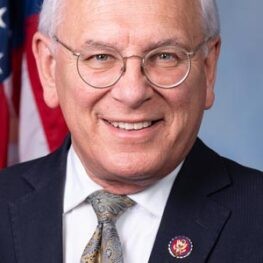Two U.S. Congressmen have introduced legislation that would require the U.S. Food and Drug Administration to ensure scientists and doctors with direct expertise are involved throughout the process of reviewing a treatment for rare and ultra-rare conditions.

Photo: Congressman Paul Tonko (D-New York)
U.S. Representatives Paul Tonko (D-New York) and David McKinley (R-West Virginia) are introduced the Helping Experts Accelerate Rare Treatments (HEART) Act.
“Rare and ultra-rare diseases present a unique challenge for drug development because, while some 25 to 30 million Americans have a rare condition, any one of these conditions by definition only impacts a relatively small number of individuals,” said Tonko. “Our bipartisan legislation tackles this issue by ensuring rare disease experts are at the table as these therapies are being reviewed by the FDA as well as amplifying the patient perspective as safety protocols are being established.”
The HEART Act requires FDA rare disease program staff to participate in reviews for drugs to treat rare diseases. It directs the inclusion of experts in rare diseases on advisory committee panels for rare disease drugs.
The act also requires the FDA to develop an annual report on the number and progress of rare disease drug applications within each division at the agency, requires that patients be consulted regarding Risk Evaluation and Mitigation Strategy (REMS) when a rare disease drug needs patient participation, and it direct the General Accounting Office to review best practices used in the European Union process for rare disease drug approval including data from open label extension studies.
This legislation is supported by a number of rare disease advocacy groups including the Familial Chylomicronemia Syndrome (FCS) Foundation, HAYSTACK Project, and a coalition of other leaders in patient advocacy and treatment for rare diseases.
Jim Caro, CEO of Haystack Project, said in many cases, information about the burden and impact of an ultra-rare disease is not well understood and data are limited. As a result, efforts to review new drugs cannot follow the standard procedures that might work well for diseases like diabetes or breast cancer that affect millions of people.
“In our mission to expand treatment access and reimbursement for patients living with rare and especially ultra-rare diseases, the first and most important issue is that drugs that can provide benefit are reviewed and approved,” said Jim Caro, CEO of Haystack Project. “The easy-to-implement modifications in The HEART Act will represent a major advance in that process.”
Author: Rare Daily Staff

Stay Connected
Sign up for updates straight to your inbox.
